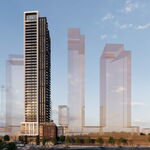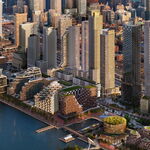mrgrieves
Active Member
Please find me an article relating to Toronto where theres the same sentiment as Montreal RER.
I’m a bit surprised by the comments in the Radio-Canada article. But not completely.
Having spent most of my life in Montreal, I feel there is a different sentiment between the two cities. It’s very hard and almost unfair to generalize, but Montreal tends to be less private than Toronto and open to things that may cause headaches but overall are beneficial.
In Montreal, its much more common to live in multi-family residences like duplexes, or triplexes. While many people live in high-rise apartments in Toronto, these tend to be more private than walk-up type places. And there are many more public spaces like parks and squares in Montreal where people are comfortable just lounging around. These exist to a more limited extent in Toronto to areas like Yorkville.
Montreal’s attitude is evident in the festival culture of the city like Jazz Fest and Just For Laughs where huge parts of the downtown core are closed to cars and a lot of people in the city will spend their days or evenings just walking around and enjoying the free, public entertainment, and their city. I know that Toronto has its festivals, but they are smaller in scale and much less laid back. In Montreal, these festivals cause huge disruption to some parts of the city, especially Jazz Fest. Road traffic and parking can be a nightmare. But overall people in the city love these events and feel that the disruptions are worth it. Montreal is less corporate and utilitarian, and I feel there is a stronger balance between cultural elements and pleasing the private sector.
That being said, the Radio-Canada article does seem biased and I am sure there are many people in the city (in more affluent areas especially) who would passionately reject having overhead trains every 6-12 minutes. And personally speaking, I would not want to live close that sort of infrastructure.
(Also, there are MANY things that Toronto does far better than Montreal.)




